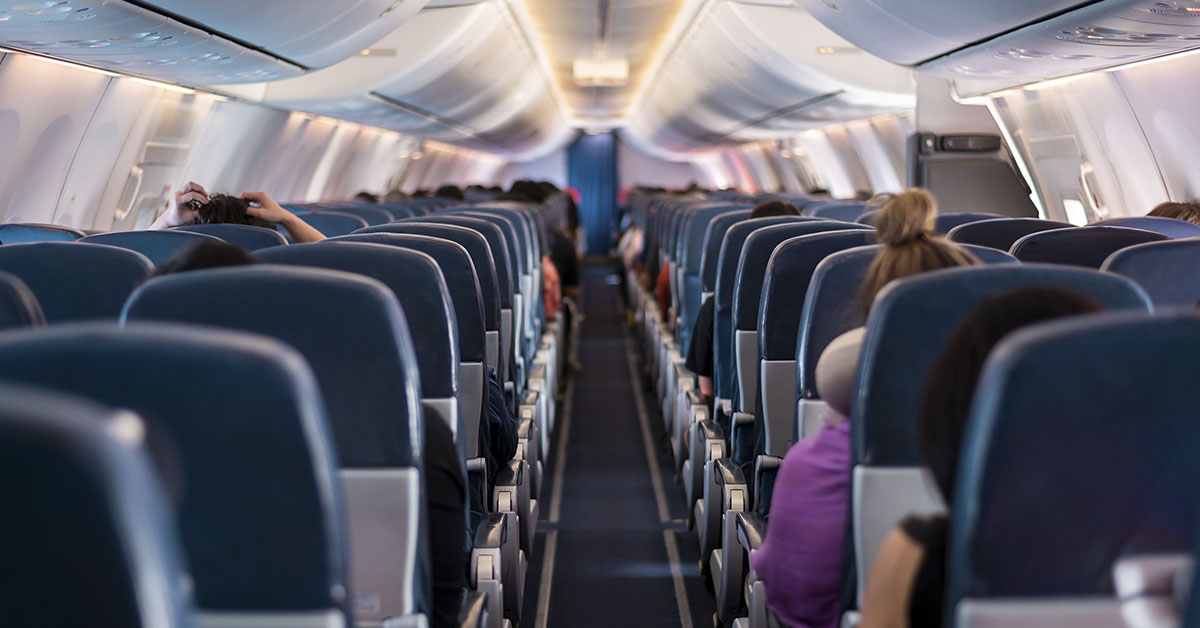Air travel should work for everyone, no exceptions. A recent photo has started an important talk about making flights comfortable for all passengers, not just those who fit a certain mold. The image shows a man struggling to squeeze into a standard airplane seat, his discomfort visible to anyone who looks. plus-sized passengers often face these challenges daily when flying. Christopher Elliott captured this moment on a flight from Helsinki to Copenhagen last year. When the music group Pretty Ricky shared the photo on social media, it resonated with thousands. Now, people across the globe are asking tough questions: Should airlines change how they handle passengers who need more space? Who should bear the cost? The real goal goes beyond policy tweaks. It’s about ensuring everyone can fly comfortably and with the basic respect all travelers deserve.
The Growing Challenge for Plus-Sized Passengers in Air Travel
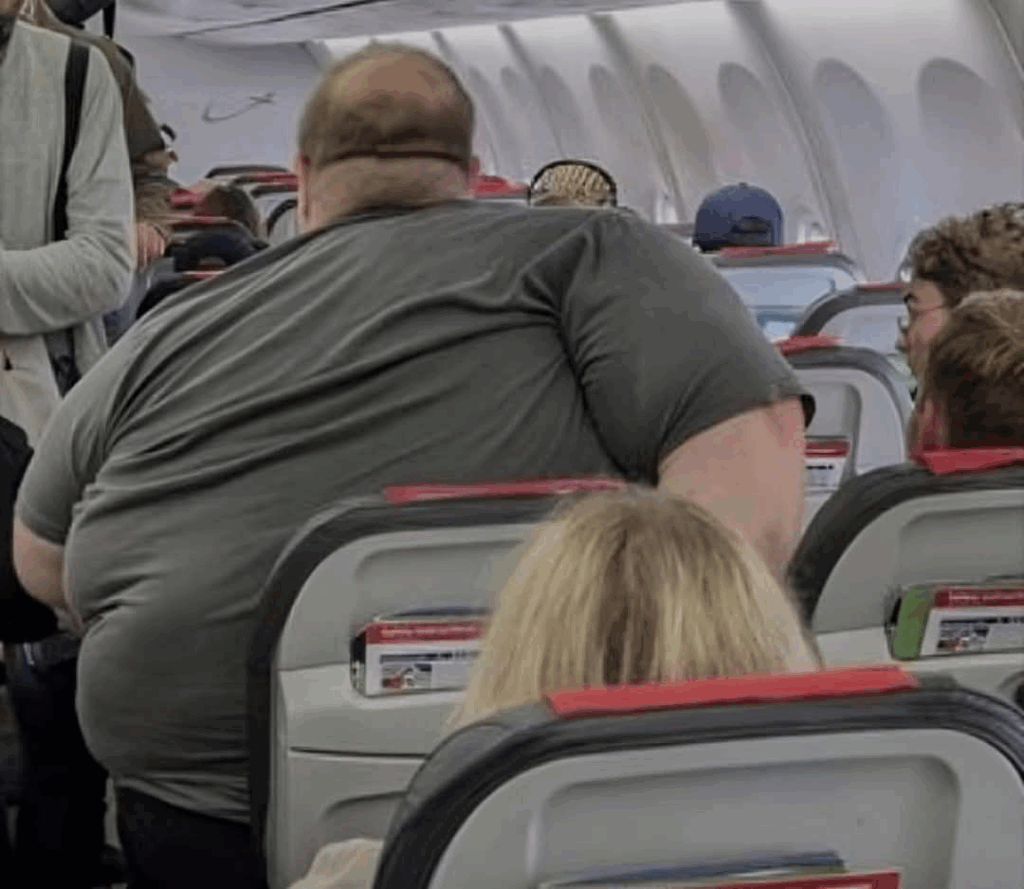
You’ve probably been on a cramped flight before, right? Well, this viral photo takes that feeling to a whole new level. It shows a larger man wedged into a standard airplane seat, his body spilling over the armrests. He looks pretty uncomfortable trying to make do with the tight squeeze.
Christopher Elliott, who helps consumers fight for their rights, took the photo. And let me tell you, when Pretty Ricky shared it on Facebook, things went wild. Elliott noted, “Airlines will have to have something for passengers who need more space.” The post racked up over 2,000 comments from people worldwide. Some supported the passenger, while others worried about their comfort on flights. I’ve been on both sides of this situation, and it’s trickier than it seems at first glance.
Read More: The ‘Ozempic Diet:’ Can Certain Foods Simulate The Effect of Semaglutide?
The Current Policies Affecting Plus-Sized Passengers
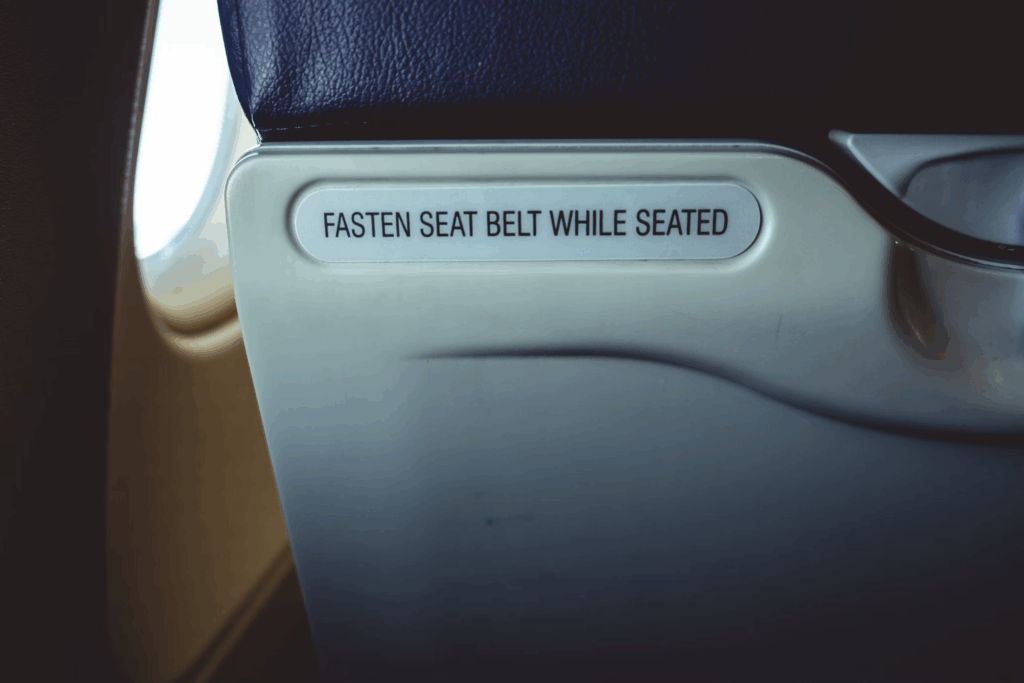
Here’s a fun fact: airplane seats are typically just 17 inches wide. That’s barely wider than a laptop! For many people, this simply isn’t enough room. American Airlines states that passengers who need a seatbelt extender and whose body “extends more than 1 inch beyond the outermost edge of the armrest” may need to purchase a second seat. Southwest has its “customer of size” policy, offering passengers a complimentary additional seat if they book in person at the ticket counter.
Delta doesn’t have a formal written policy, but suggests passengers who need extra space purchase an additional seat in advance. United Airlines requires passengers who “cannot fit into a single seat” to purchase an adjacent seat or upgrade to a larger seat in another cabin. These policies exist, but enforcement varies widely from flight to flight, often depending on how full the plane is and the discretion of gate agents.
Why Airlines Charge Full Price for Extra Seats
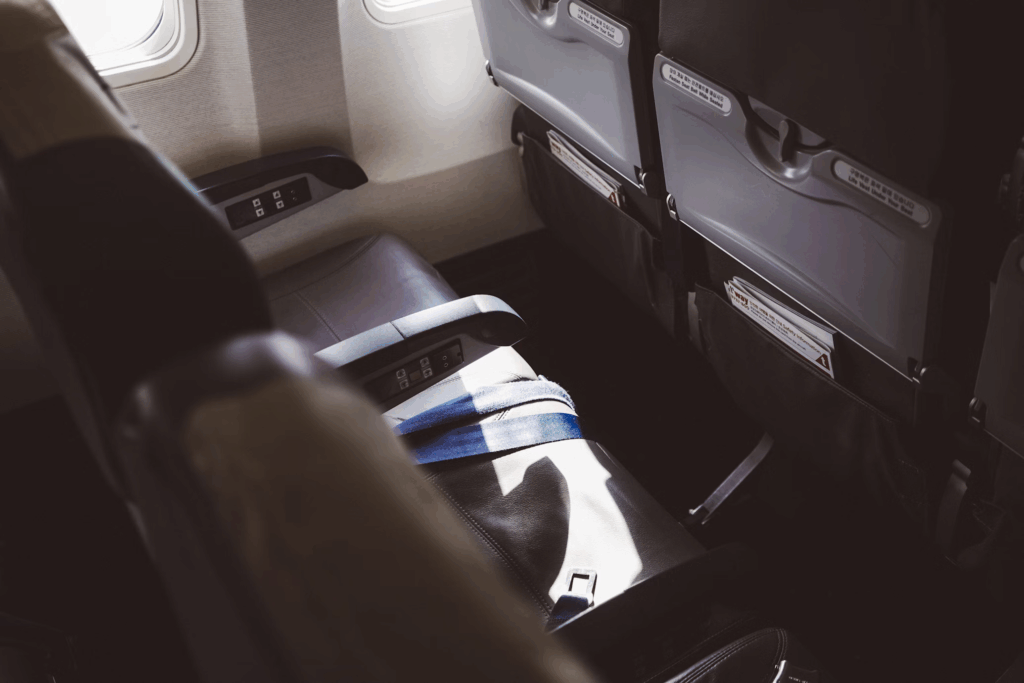
These fares can double the travel cost for passengers who need more space. Some carriers will refund that second seat on flights with empty spots, but this isn’t guaranteed. The financial implications raise important questions about fairness and accessibility in air travel. What constitutes reasonable accommodation? That’s where the conversation gets complicated for everyone involved.
What Real People Are Saying About Plus-Sized Passengers’ Rights
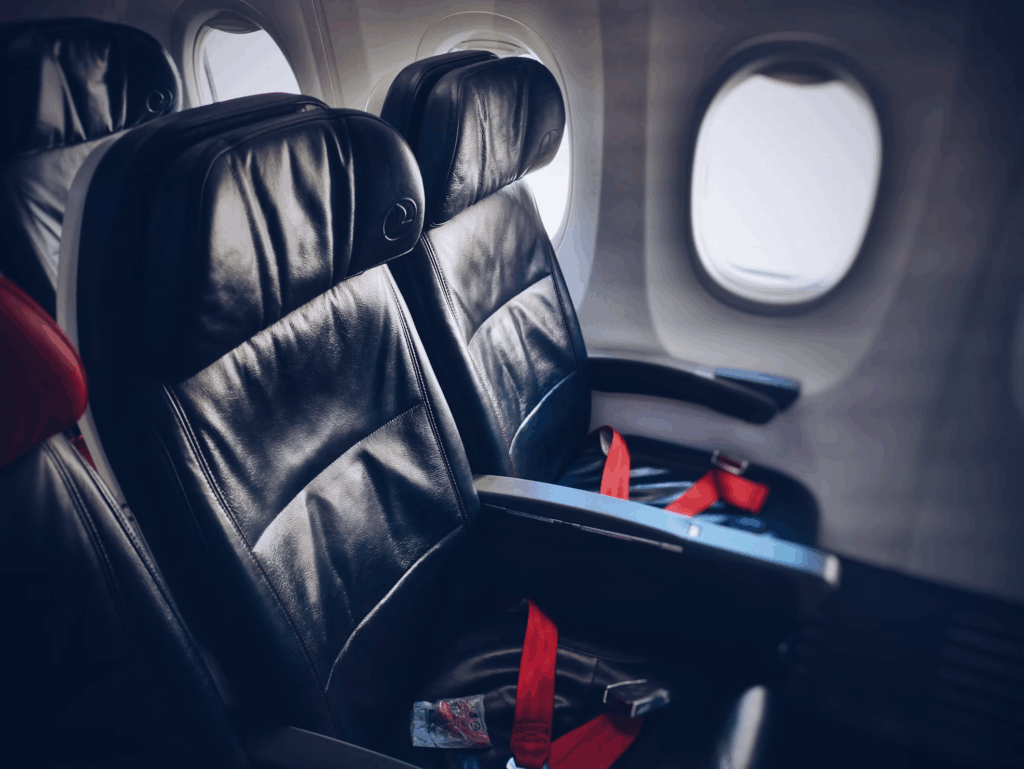
The photo stirred up a storm of opinions, with commenters not holding back their thoughts. “If they take up two seats, they should pay for two seats,” wrote one commenter, which others agreed with. For these commenters, it comes down to simple economics. Another commenter didn’t mince words: “You should simply weigh them like luggage before check-in. If they’re too bulky, they won’t fly unless you buy a second ticket.”
A third perspective offered: “Easily solved, if you are this large, you need to buy two seats. OR they should make plus-sized seats for passenger’s like this and charge them extra for the larger seat. Plain and simple.” Some shared their personal in-flight experiences. “I sat next to a passenger who had a seat belt extender on. For 3 hours, not fun or fair to others,” recalled one traveler.
Many Drew Parallels To Other Airline Rules
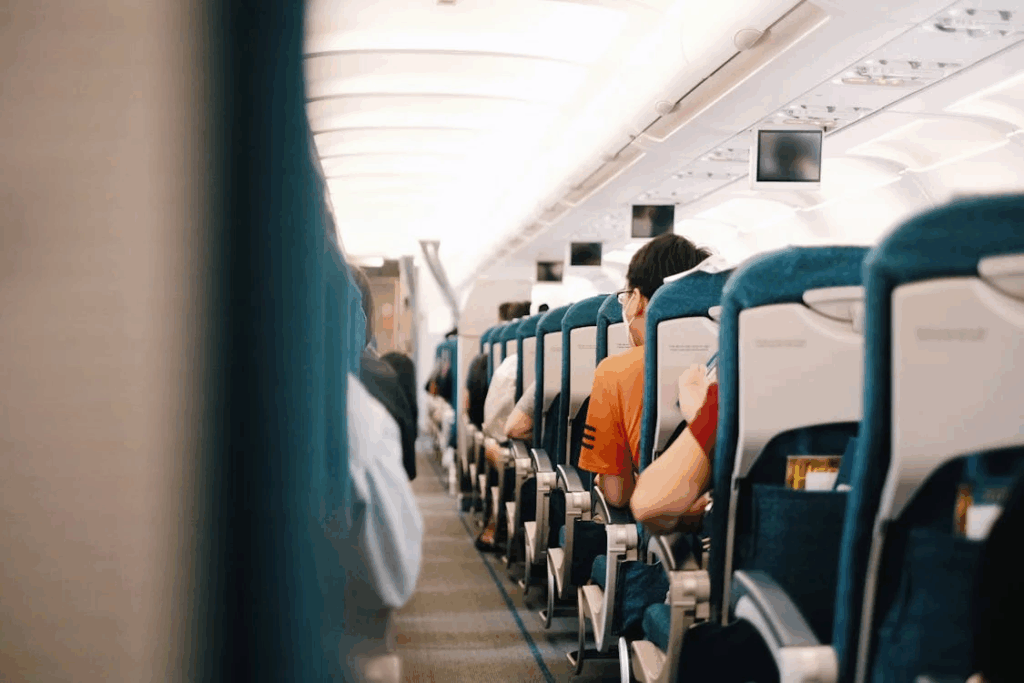
“Tall people with long legs have to pay for extra leg room; I see no reason for wide people to be treated differently,” noted one comment. Another comparison came up: “I pay $150 for my pet that has to ride in a crate, under the seat.” A practical concern appeared in the comments: “How will they fit into the bathroom? Just saying the doorway is small.”
Some comments addressed broader societal issues: “As a society, we could teach better eating habits and stop eating fast food.” The group that shared the original photo summed it up well: “It’s a difficult situation because the airline will need to think of a happy medium.” Finding a solution that works for everyone is no walk in the park.
Finding Middle Ground in the Middle Seat
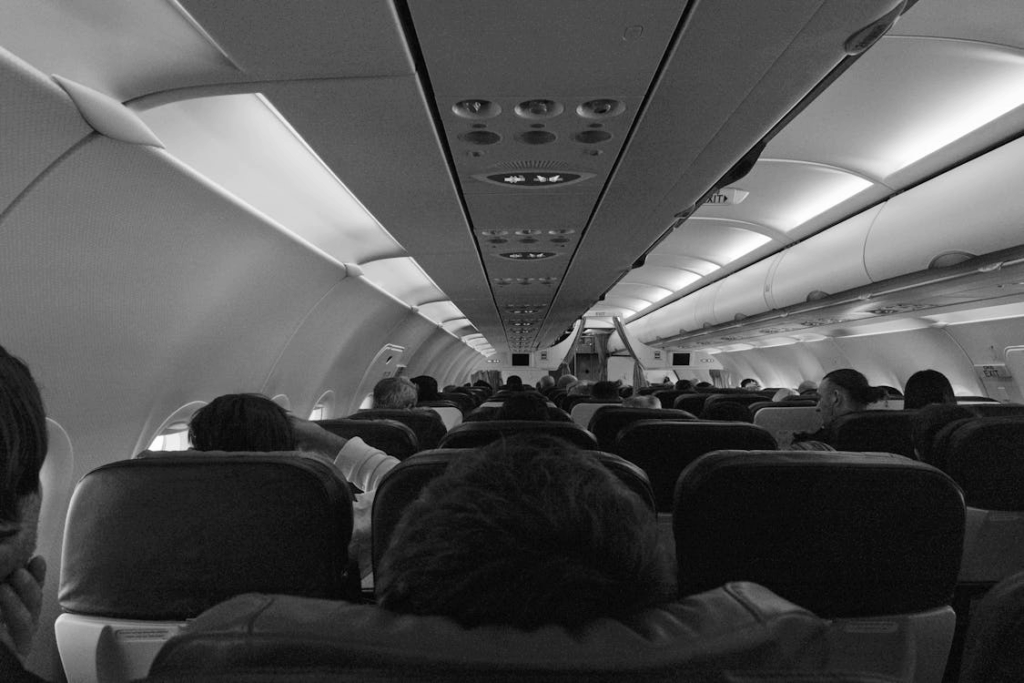
So what can we do? Buying two seats works for airlines but hits travelers’ wallets hard. Sure, it gives needed space, but at double the cost. What about creating wider seats? Airlines already offer more legroom in premium sections, so why not wider seats too? A “comfort class” with roomier seats could let people pay based on what they need. Seems fair, doesn’t it?
But Seats Are Just Part Of The Puzzle
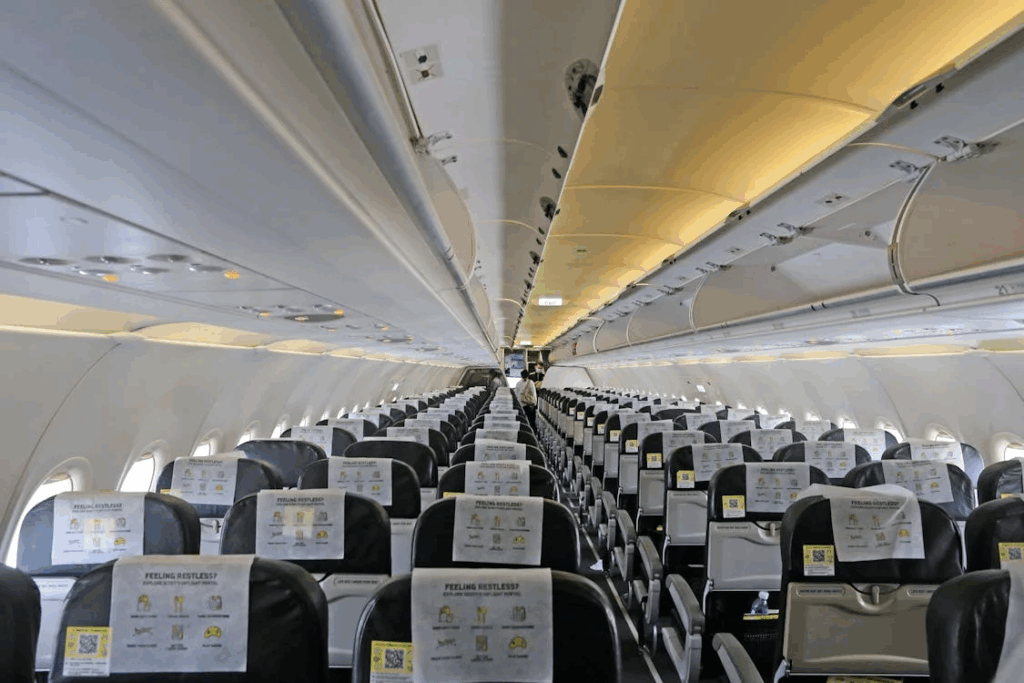
What about those tiny bathrooms? Or the narrow aisles? Any real fix needs to consider the whole flying experience. From check-in to touchdown, comfort should be part of the deal for all travelers. The perfect answer isn’t simple, but it needs to balance fairness with respect for all body types. After all, we’re talking about human dignity here, not just airline profits. The experiences of plus-sized passengers deserve consideration in these conversations about airline policies and design.
Looking Ahead
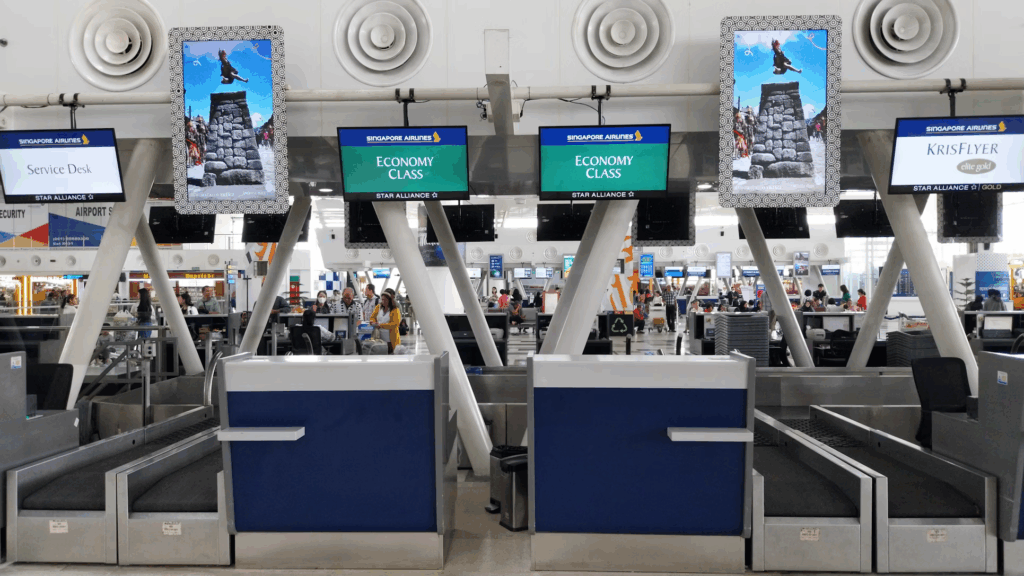
This viral photo has people talking about an issue that’s been flying under most people’s radar. How do we make air travel work for everyone, regardless of size? Airlines face a tough balance. They need to help all passengers while keeping their business in the black. As more voices join this conversation, carriers might just find creative ways to make their flights work better for everyone. Because in the end, plus-sized passengers deserve to reach their destination with their dignity intact. Isn’t that what travel should be about?
Read More: Is The Current Approach To Obesity Working?
